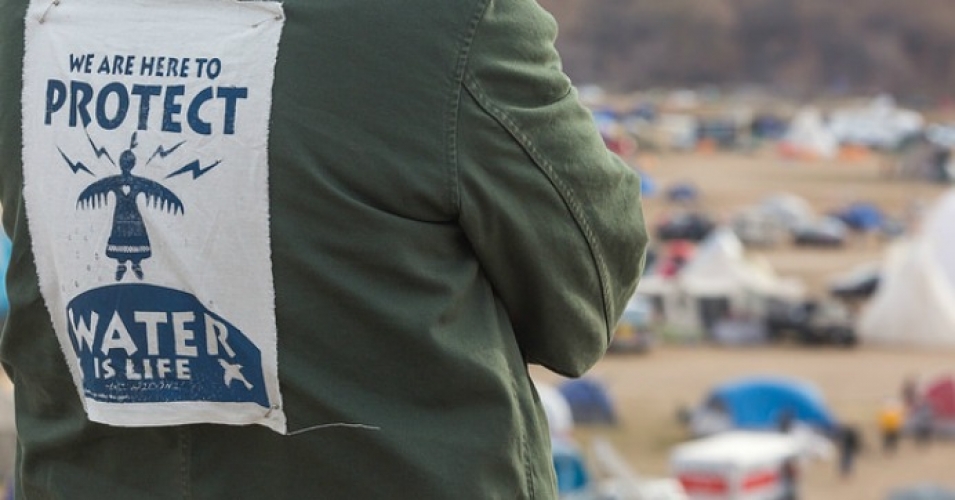Co-chairs of Native American Affairs Coalition say they want to ‘take tribal land away from public treatment’
By Nadia Prupis, staff writer for Common Dreams. Published 12-5-2016

Coming just as Native American water protectors cautiously celebrate a hard-fought victory against the Dakota Access Pipeline, the proposal is another example of Trump’s incendiary and divisive policies. (Photo: Revolution Messaging/flickr/cc)
President-elect Donald Trump’s advisers are aiming to privatize Native American reservations that contain about a fifth of the nation’s oil and gas, Reuters reports.
Two chairmen of Trump’s Native American Affairs Coalition told the outlet that they want to put those lands into private ownership, a proposal that would upend historic policies put into place to preserve Indigenous sovereignty. The plan would deregulate drilling, which the coalition says would benefit the tribes who currently have the rights to use the land, but do not own it. In addition to holding about 20 percent of the nation’s oil and gas, the lands also include vast coal reserves—all worth an estimated $1.5 trillion.
Chair Rep. Markwayne Mullin (R-Okla.), an enrolled member of the Cherokee Nation, told Reuters, “We should take tribal land away from public treatment. As long as we can do it without unintended consequences, I think we will have broad support around Indian country.”
Coming just as Native American water protectors cautiously celebrate a hard-fought victory against the Dakota Access Pipeline (DAPL), the proposal is another example of Trump’s incendiary and divisive policies. Trump has also officially expressed his support for DAPL, making opponents wary that he would reverse any orders that blocked construction on the 1,172-mile project once he gets into office.
Tom Goldtooth, executive director of the Indigenous Environmental Network and a member of the Navajo Nation, told Reuters, “Our spiritual leaders are opposed to the privatization of our lands, which means the commoditization of the nature, water, air we hold sacred. Privatization has been the goal since colonization—to strip Native Nations of their sovereignty.”
Trump’s transition team reportedly did not respond to Reuters‘ requests for comment.
Notably, three of the four coalition chairs have ties to the fossil fuel industry, with Mullin receiving about eight percent of his campaign funds from various energy companies. Ross Swimmer, another co-chair and ex-chief of the Cherokee Nation who also worked in the Reagan administration, is a partner at an investment firm with funds in Energy Transfer Partners—the builder of the Dakota Access Pipeline.
Kevin Washburn, a member of the Chickasaw Nation and former assistant secretary for Indian Affairs at the Department of the Interior under President Barack Obama, warned that U.S. history is rife with treaty violations, especially when privatization is involved.
“Privatization of Indian lands during the 1880s is widely viewed as one of the greatest mistakes in federal Indian policy,” he told Reuters.
Washburn added that with the specter of a Republican-majority Congress looming, as well as the possibility of Trump appointing conservative justices to the U.S. Supreme Court, legal challenges to any such policy would be much harder to win.
“With this alignment in the White House, Congress, and the Supreme Court,” he said, “we should be concerned about erosion of self determination, if not a return to termination.”

